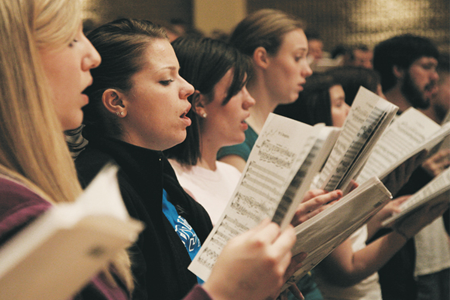“Iron sharpens iron, and one man sharpens another.”
–Proverbs 27:17 (ESV)
INTRODUCTION:
Rarely do we run with open arms towards an “end-of-the-year review” or “performance evaluation.” Our human nature is that we simply don’t like our flaws or failures to be exposed, even if we are also acknowledged for all the skills that we do execute well. It’s humbling, unsettling, and disturbing to our sense of self-confidence. This, in fact, is the source of my present discomfort: I am anxiously awaiting the results of my end-of-semester student course evaluations. While I expect some positive feedback, I will undoubtedly receive some criticism in areas in which I need to improve.
As I reflect on my career change from full-time ministry to full-time teaching, I realize that at no point during ten years of ministry did I systematically solicit any sort of constructive, organized feedback from ministry volunteers (students or adults) regarding my effectiveness. Sure, we are all afraid of giving that kind of power to individuals, especially under the cover of anonymity; some might have personal agendas, vendettas, or axes to grind, but what about the affirmation we might receive? And what about the thoughtful, constructive responses that might enable us to be more effective in ministry? Hindsight is 20/20; I am certain that my years in ministry would have been greatly enhanced by the feedback gained from such an exercise.
ACTION POINT:
It seems natural, then, to provide a sample feedback form (“assessment tool”) as a springboard for you to create your own version. Listed below are the course evaluation questions that students have completed regarding my teaching performance. I think it will be obvious which aspects of the questions do not directly translate to a ministry context, and some verbosity might need modification or discarding, BUT I also think you will be able to mentally make the adjustments to accommodate a church ministry environment. As you read these questions and engage in self-reflection (much less, wonder how your volunteers would answer), I think you will find it quite telling, informative, and enlightening.
Maybe you are running on “auto-pilot”, or have found yourself “punching the clock,” or even on the verge of burning out. Something like this evaluation has a way of motivating us to stay sharp and active in our own personal development. Perhaps budget money is tight and your “Continuing Education” funds are depleted or non-existent. Here’s a free and efficient way to find out how to sharpen your skills.
It is important that we take a moment to open ourselves up, swallow our pride, and let others affirm what we do well so that they can help us discover where we need to improve. Consider selecting a few youth choir students, parents, and other invested participants within the music ministry to anonymously complete a modified version of the following evaluation form. Here’s to self-improvement and the honing of our skills for work in God’s Kingdom.
NOTE: The assumption I have made is that one of the primary roles of a minister is to teach. As leaders in music ministry, we are all definitely teaching something, and it’s not just music. The very essence of teaching is to encourage some type of change in thinking and/or behavior.
Remember: these questions are copied from a university course evaluation. Tailor them to meet your needs and context.
The response scale for each question is as follows:
Never Rarely Sometimes Frequently Always
- The instructor is prepared for class.
- The instructor encourages, when appropriate, an open exchange of ideas in class.
- The instructor’s presentation of the subject matter is clear.
- The instructor’s presentation of the course motivates learning about this subject.
- The instructor uses class time effectively.
- Assessment activities reflect the objectives and content of the course as stated in the syllabus. (e.g., tests, quizzes, papers, projects, performances, etc.)
- NOTE: What are your primary objectives/goals within your ministry? What is the content that you are using to shape your volunteers and reach those goals?
- The instructor clearly communicates course expectations, assignments, and due dates.
- The instructor gives feedback (i.e. grades and/or written comments) within two weeks on tests, papers, projects, performances, etc.
- The instructor provides feedback that aids student learning.
- The instructor acknowledges appropriate questions and attempts to provide means to an answer.
- The instructor encourages students to use appropriate resources to improve understanding of the content (one or more of the following: textbooks, primary literature, suggested readings, library, databases, tutoring, other faculty experts, etc.).
- The instructor provides opportunities to help students outside of class (e.g., through office hours, email, Moodle, or phone).
- The instructor shows interest in students and their learning.
- The instructor’s presentations and course assignments encourage students to think critically within the subject area of this course.
- Class includes prayer or devotion.
- The instructor challenges students to think about how learning relates to faith and Christian worldview.










